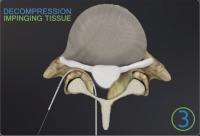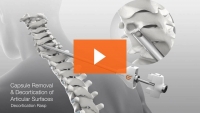What is outpatient surgery?
Outpatient surgery, also known as ambulatory surgery or same-day surgery, refers to surgical procedures that do not require the patient to be admitted to the hospital. These procedures typically allow the patient to leave the hospital or surgical center the same day.
Outpatient surgeries can take anywhere between minutes to a few hours. These procedures are typically not labeled as medical emergencies. Some common outpatient procedures include cataract surgery, hernia repair, gallbladder removal, tonsillectomies, and some cosmetic surgeries.
This type of surgery is becoming increasingly common. In fact, according to the American Society of Anesthesiologists, approximately two-thirds of all operations are currently performed in outpatient facilities because of the benefits it provides. Some health experts expect this number to continue to increase.
What are the benefits of outpatient surgery?
There are numerous benefits with outpatient surgery compared to inpatient surgeries that require hospitalization:
- Cost. Because patients can go home after the procedure, there are no hospital-related charges like hospital room charges. Actually, some insurance companies will only cover specified procedures in an outpatient setting.
- Convenience. Same-day procedures provide patients with the convenience of recovering from their treatment at home.
- Less Stress. Being hospitalized and recovering in a hospital room can be stressful, especially for children who must go through a procedure and are afraid of being away from home.
- Scheduling. Scheduling can be more predictable and punctual in an outpatient facility as opposed to a scheduled inpatient surgery because hospitals can be delayed by long-running procedures or emergencies.
How do I prepare for outpatient surgery?
Preparing for outpatient surgery is similar to preparing for traditional, inpatient surgery. You first need to consider the type of anesthesia you will be given. For example, if you are being sedated or require general anesthesia, you will probably be asked not to eat or drink anything prior to the procedure whereas local anesthesia does not have this requirement.
Other steps you can take to prepare for your outpatient procedure include:
- Dress for comfort. Wear comfortable clothes that will not interfere with bandages to ensure you are comfortable after your procedure.
- Bring a friend. Especially if you are expected to be sedated, it is recommended to bring a friend or family member with you to your procedure to assist you when you leave and to help keep you relaxed for your procedure.
- Understand side-effects. When undergoing any procedure, even minor ones, it is important to understand any possible side-effects you can experience afterward so that you can know how best to treat it and when you should contact your doctor.
- Plan your recovery. Whether you are going through minor surgery with local anesthetic or one that requires you to be completely sedated, it can be helpful to plan your recovery. Have a plan for who will be with you after the procedure, what you may need help with, accommodating your home according to your procedure (having easier access to the restroom, having extra pillows to help you sleep comfortable, etc.).
Outpatient surgery can be beneficial when undergoing certain procedures. At Advanced Orthopedics, our board-certified physicians offer non-surgical and minimally invasive surgical solutions for your Orthopedic, Spine, and Pain Management problems.
Our surgeons are trained in the most advanced minimally invasive surgical techniques and most procedures are successfully performed in an outpatient setting.
Contact us today to set up an appointment and learn how we can improve your health and increase your quality of life.
Sources:




